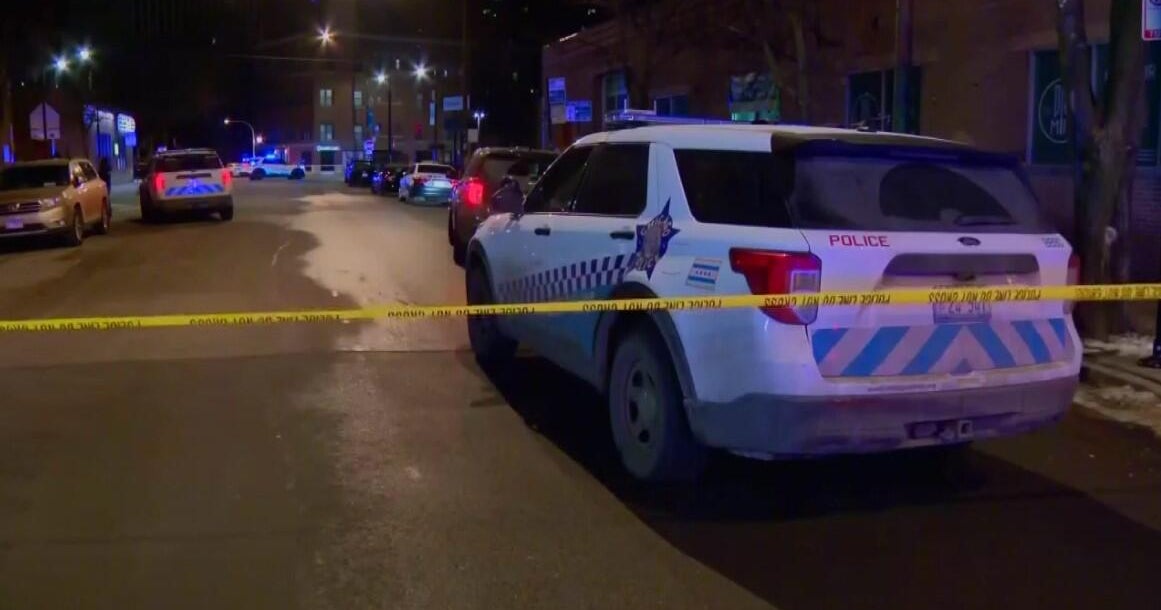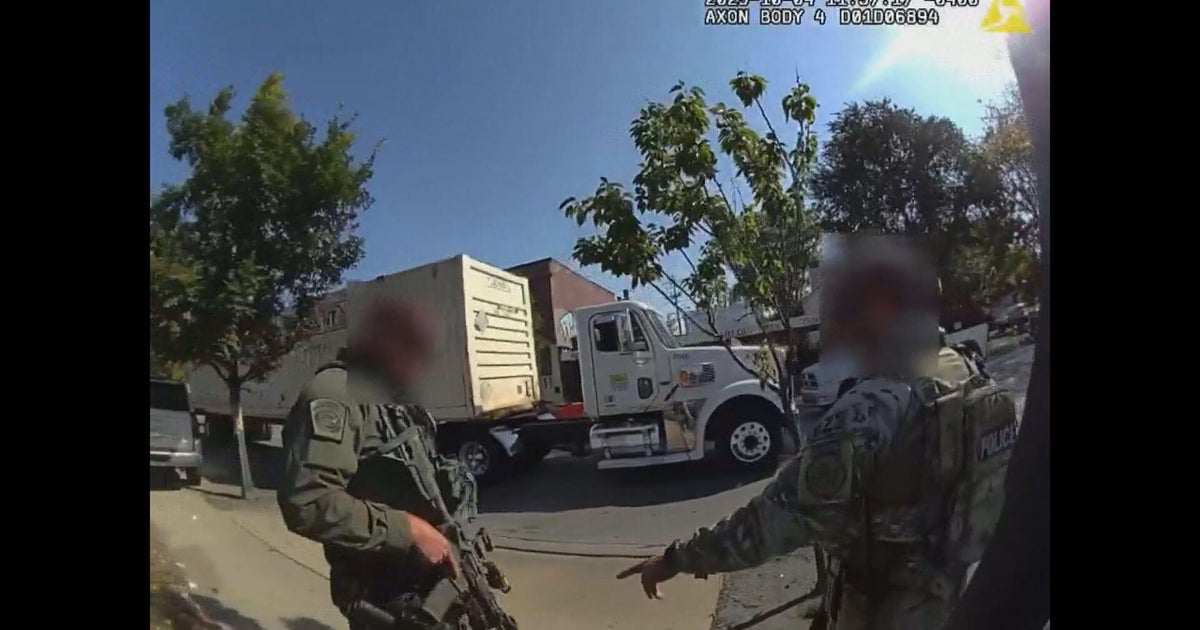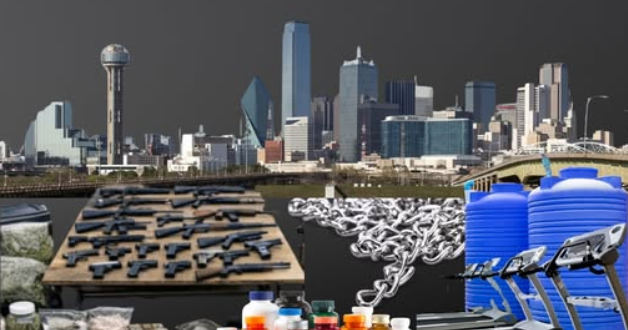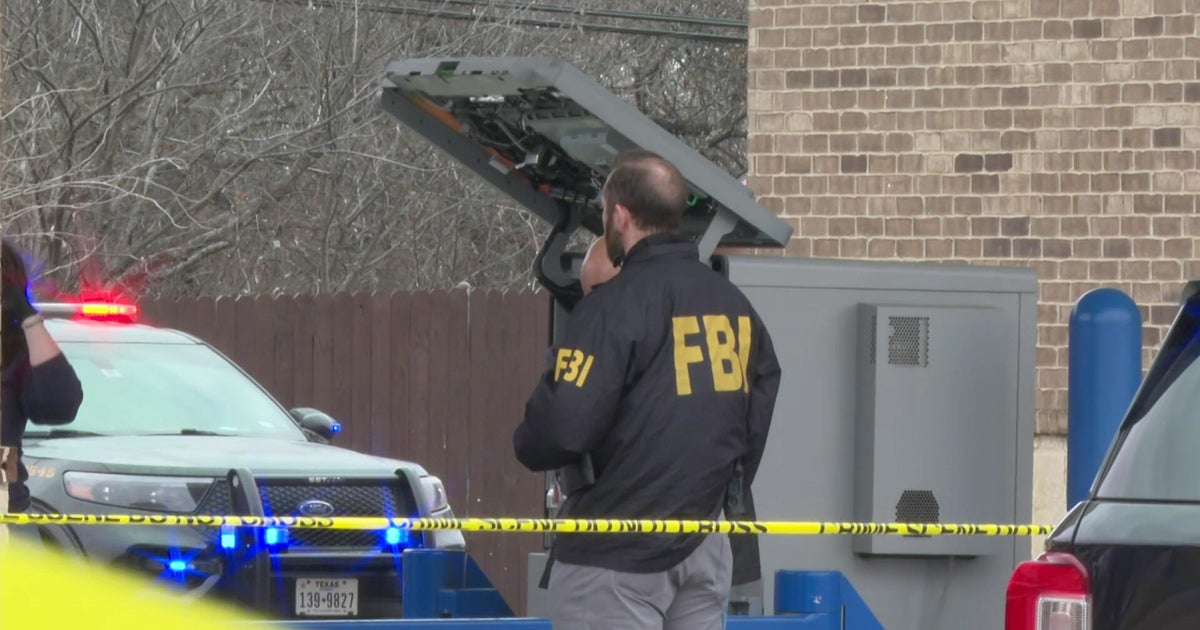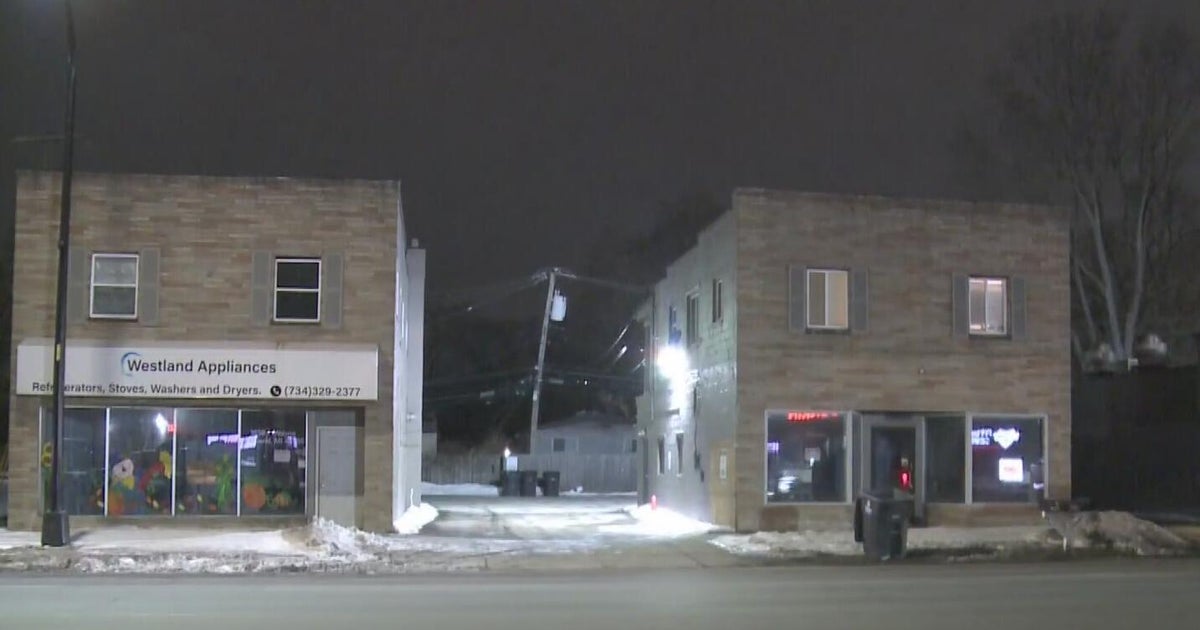Weis: 'Daley Could Not Have Been More Supportive'
Updated 03/02/11 - 6:08 p.m.
CHICAGO (CBS) -- A day after stepping down from the helm of the Chicago Police Department, Jody Weis said Wednesday it would be up to the people of Chicago to judge how well he did. But he thanked Mayor Richard M. Daley for giving him the "opportunity of a lifetime."
"Mayor Daley could not have been more supportive," Weis said. "He gave me an opportunity of a lifetime. He cashed in a lot of political capital to pull me out. He took a chance and hopefully history will show that we delivered on that."
Weis resigned as the superintendent of the Chicago Police Department on Tuesday, the final day of his three-year contract to run the department. He spoke to CBS 2's Vince Gerasole at Police Headquarters on Wednesday, after clearing out some of his personal effects.
Although the police department saw a significant drop in homicides and other crime under Weis's watch, his tenure was marred by what many observers said was plummeting morale among rank-and-file officers.
As of late last year, a two-year hiring slowdown had left the Chicago Police Department more than 2,300 officers a day short of authorized strength, counting vacancies, medical leave and limited duty.
Weis disputed that morale was a problem at the Police Department during the past three years, saying that the city could not have achieved the drop in crime that it saw in the past three years if officers were demoralized, especially with an under-staffed police force.
WATCH THE FULL INTERVIEW WITH WEIS IN THE VIDEO BELOW:
"When I have evaluated offices and units that have bad morale, they don't do anything. If you look at Chicago and you apply that same theory, I think our guys are working pretty hard," Weis said. "Is there a handful of people that are unhappy? Yeah. They'd be unhappy regardless of who the superintendent is. But if you look at the results our guys were able to obtain being down over 1,100 vacancies, it just doesn't make sense in any way I've ever evaluated morale to say that the Chicago Police Department is demoralized. They could not achieve the numbers they achieved if they were a demoralized unit."
From early on, critics called Weis, a 23-year FBI veteran, an out-of-touch outsider. The Fraternal Order of Police charged that Weis was responsible for low morale in the department because officers believed he didn't have their backs. Last fall, hundreds of people, including Chicago police officers, protested outside Weis' office at Chicago Police Headquarters, demanding his resignation.
But Weis said that didn't bother him.
"When you really get down to the numbers, how many people were really there, 250 (to) 300 out of 13,000? Those aren't bad odds," Weis said.
Instead, Weis said his most difficult moment as superintendent was having to deal with the murders of Chicago police officers. Four officers were shot and killed in the line of duty last year and a fifth died in a car crash on Lake Shore Drive in 2010.
"Nothing is more painful than that. ... I rehearsed those eulogies a lot because I didn't want to do anything that would have a negative impact upon the families," Weis said. "That was my worst moment and unfortunately, last year, in 2010, we did that far too many times. But that's a tribute, I think, to the resolve of the Chicago Police Department. Faced with that type of tragedy, those kicks in the stomach, the men and women have worked hard and I think that's why they were able to achieve the numbers that they did."
Weis, a former FBI official, took his post in 2008 under Daley, at a time when the Police Department was plagued by scandals that forced out his predecessor, Phil Cline.
But Weis declined to grade his own performance as the city's top cop, saying he'd leave that up to others.
"I don't think it's really right for me to rate," Weis said. "I'd ask the citizens and the officers and residents of Chicago to rate how we did. ... My whole goal has been to make sure that the Police Department is in a better spot today than it was when I first got here."
From that standpoint, Weis said he thinks the department as a whole did a good job in reducing crime.
He pointed to the city's homicide rate, which last year reached its lowest rate since 1965.
But Weis said rank-and-file officers are the ones who deserve credit for the city's lower crime rate.
"It's not me that brought those numbers down. That would be the rank-and-file," Weis said.
He also noted that citizen complaints against police officers have dropped since he's been in charge.
"I think if you look back at our numbers, I think they were good. I think if you look at the partnerships that we formed with so many people in the community, I would say that was positive," Weis said. "And I think if you look at the professionalism of our officers now, I mean less guys are being recommended for separation. Less guys have lawsuits filed against them. I would say those are the three areas I focused on: partnerships, professionalism and policing. And I would say we've made successful strides in all of those."
Weis said he plans to take a vacation next week with his wife before pursuing a job in the private sector, which would be a first for him after spending his entire career in public service, including the military, the FBI and the Chicago Police Department.
Asked what his advice would be for whoever is picked as his permanent replacement, Weis said, "just follow your heart and do what you believe in."
Former Chicago Police Supt. Terry Hillard has taken over as interim superintendent, but he said he has no interest in taking the job on a permanent basis again.
Weis acknowledged that his own leadership style at the Police Department wouldn't have matched Mayor-elect Rahm Emanuel's plans for fighting crime, so he wouldn't have been a good fit as the city's top cop when Emanuel takes office.
During his campaign, Emanuel said he wants to add hundreds more district patrol officers and beat cops to the force. Although Weis said those beat officers "truly are the backbone of the organization," he said he prefers to focus more on what he calls "intelligence-based policing."
Weis said he likes having several specialized citywide police units that can be deployed wherever the department needs them at any time, based on intelligence gathered on gang and drug activity in the city.
Weis said he thinks there are a lot of qualified candidates within the deparment to take over as top cop, but he also said he thinks Mayor-elect Rahm Emanuel should consider recruiting former Los Angeles, New York City and Boston top cop William "Bill" Bratton to run the Chicago police.
Weis called Bratton "the finest police chief in the United States" and said Bratton would be a great choice for his permanent successor.
Bratton retired from the LAPD two years ago and is now in the private sector.
"I know Bill is doing very well in private industry. I don't know if Rahm could lure him out of that, but Rahm's very persuasive. I think Bill is just the greatest," Weis said.
(CBS Chicago Web Producer Todd Feurer and CBS 2's Vince Gerasole contributed to this report.)
